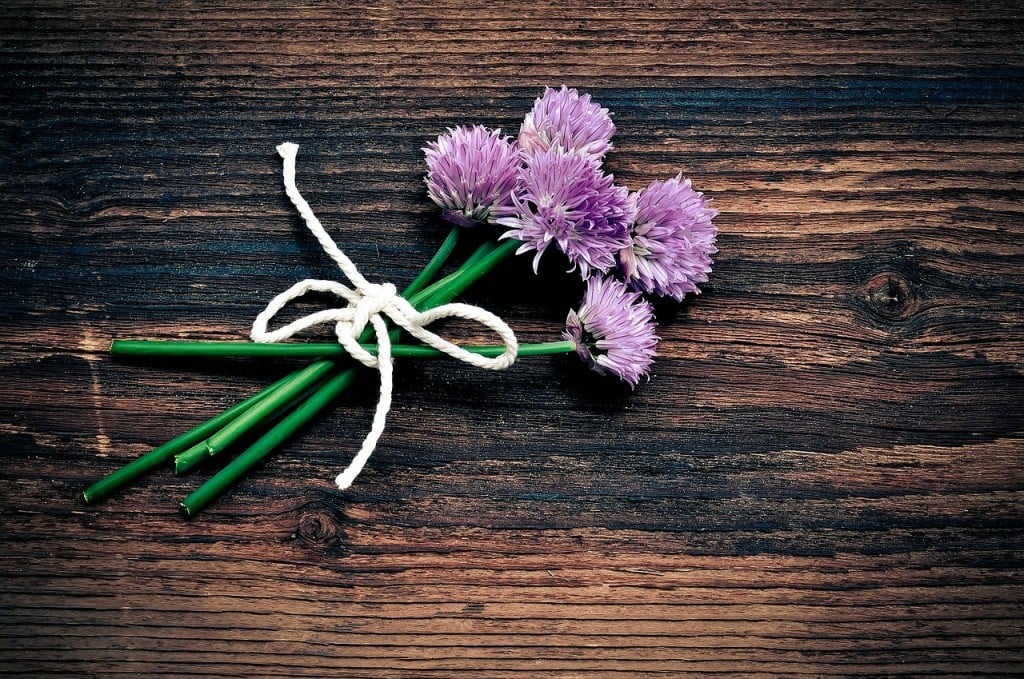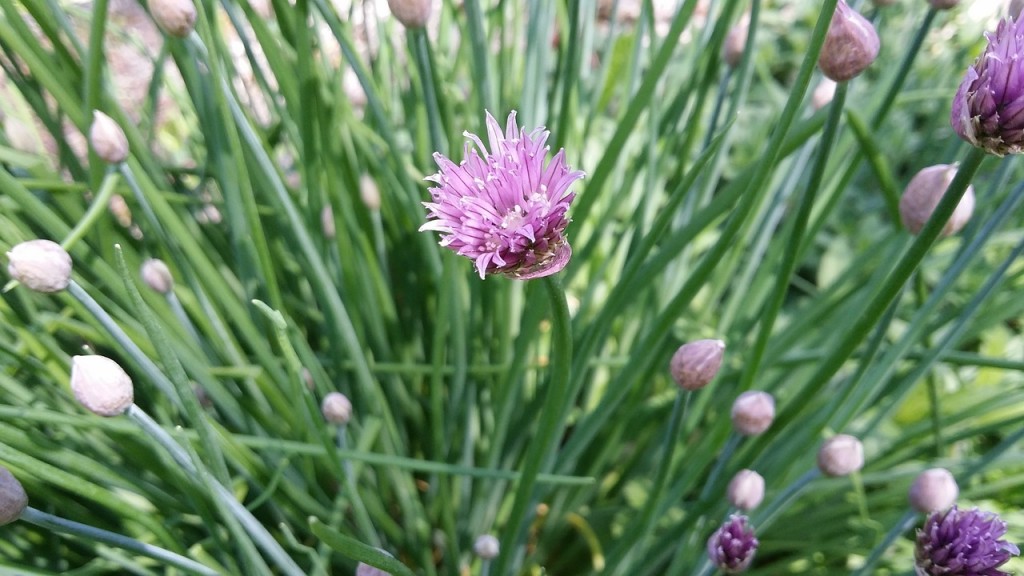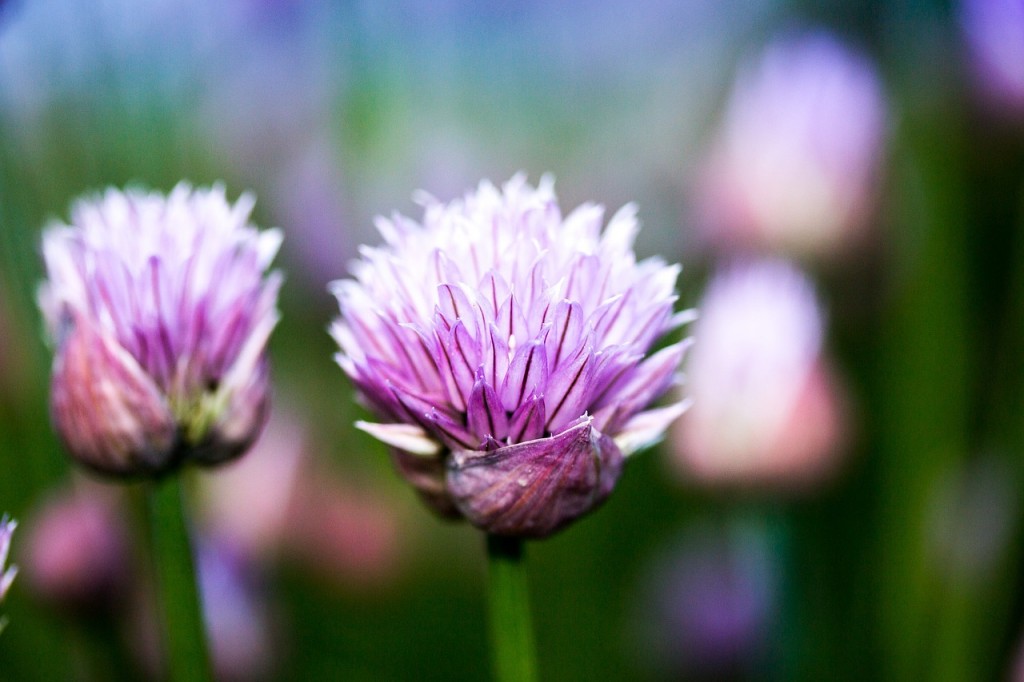
One of the prettiest members of the onion family, chives are a treat in the ornamental garden as well as on the veg plot or herb garden.
Unfussy and easy to grow, they can be harvested for much of the year and from May onwards produce beautiful fluffy heads of pink, purple or white flowers.
Varieties
The most commonly grown chives are the common chive, Allium schoenoprasum, and garlic or Chinese chives, A tuberosum. The former has thinner leaves and pink flowers.
When crushed the plant has a mild scent of onion and a mild onion taste.
Garlic chives have broader leaves and a distinctive, although again mild, garlic taste and scent. The flowers are white.
Garlic chives look more robust than their cousin and at around 40cm (16in) grow a little taller, but both are very hardy.
Growing tips
Chives will grow in most soils and situations, but prefer a spot in semi-shade or full sun for part, but not all, day. They like a moist soil, so add plenty of well-rotted garden compost, old potting compost or manure to the soil and dig in prior to planting.
Water well between April and September when the weather is dry or the quality of the leaves will suffer.
Every two or three years dig up established clumps and divide them in the spring, keeping the best sections and discarding the rest or using spare sections to increase stocks.
Replant straight away. Alternatively sow seeds in the spring indoors in a heated propagator set to 18C (65F).

Sow a little pinch of seeds to each cell in a tray and grow the resulting clump on as one plant.
Since chives are herbaceous perennials, they will die down with the first frosts.
However the harvesting season can be extended by lifting a healthy clump in the autumn and potting up into a pot just large enough to take the rootball.
By growing your plants in a frost free light place such as a greenhouse or polytunnel you can harvest leaves for an extra month or so.
Growing in pots
Grow chives in a pot for a decorative and practical container for your patio. Place your pot near the kitchen so that fresh leaves are always close at hand when you need them.
They can also be grown in window boxes and hanging baskets provided that they receive enough water during the growing season.
If using a peat or coir-based compost, add some water holding gel to help prevent plants from drying out during the summer.
Nutrition
Chives contain useful quantities of iron and some vitamins including vitamin C.
Top Tip
Like all the onion family chives have good antiseptic properties and are said to improve appetite and digestion.











